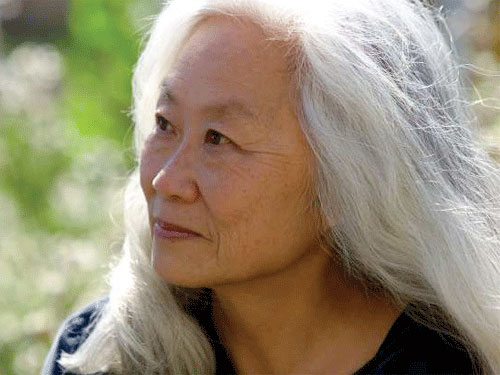Quotable: Maxine Hong Kingston

Years ago, when I was an undergraduate student at Mohamed-V university, I was assigned Maxine Hong Kingston’s The Woman Warrior. I remember very clearly reading that stunning first line (“You must not tell anyone,” my mother said, “what I am about to tell you.”) and not being able to put down the book after that, despite having to reach for the dictionary so many times. That book resonated deeply with me for reasons that really didn’t become clear to me until a long time later. Yesterday, in my introduction to creative writing class at UC Riverside, my students and I discussed the opening chapter, “No-Name Woman.” This is how it closes:
The real punishment was not the raid swiftly inflicted by the villagers, but the family’s deliberately forgetting her. Her betrayal so maddened them, they saw to it that she would suffer forever, even after death. Always hungry, always needing, she would have to beg food from other ghosts, snatch and steal it from those whose living descendants give them gifts. She would have to fight the ghosts massed at crossroads for the buns a few thoughtful citizens leave to decoy her away from village and home so that the ancestral spirits could feast unharassed. At peace, they could act like gods, not ghosts, their descent lines providing them with paper suits and dresses, spirit money, paper houses, paper automobiles, chicken, meat, and rice into eternity essences delivered up in smoke and flames, steam and incense rising from each rice bowl. In an attempt to make the Chinese care for people outside the family, Chairman Mao encourages us now to give our paper replicas to the spirits of outstanding soldiers and workers, no matter whose ancestors they may be. My aunt remains forever hungry. Goods are not distributed evenly among the dead.
My aunt haunts me-her ghost drawn to me because now, after fifty years of neglect, I alone devote pages of paper to her, though not origamied into houses and clothes. I do not think she always means me well. I am telling on her, and she was a spite suicide, drowning herself in the drinking water. The Chinese are always very frightened of the drowned one, whose weeping ghost, wet hair hanging and skin bloated, waits silently by the water to pull down a substitute.
It was a useful chapter for our discussion of truth, whether in fiction or nonfiction.